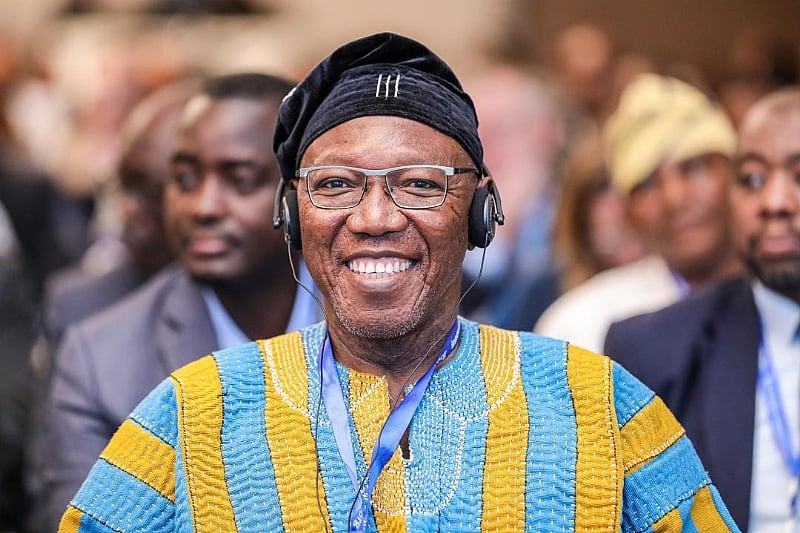Ghana’s ambitious educational reforms, spearheaded by the Ministry of Education, took center stage at the Innovation Africa 2025 summit in Addis Ababa, Ethiopia. Deputy Minister Dr. Clement Apaak articulated the nation’s comprehensive strategy to elevate the teaching profession across the African continent. This strategy focuses heavily on professional development, recognizing that high-quality teachers are the cornerstone of effective education systems. Dr. Apaak emphasized Ghana’s commitment to sharing its experiences and resources with other African nations, advocating for collaborative solutions to shared educational challenges. This pan-African approach aims to leverage collective strength and expertise to accelerate educational progress across the continent. The summit served as a crucial platform for discussing and disseminating these innovative reforms, fostering a collaborative environment among African nations.
Central to Ghana’s reforms is the overhaul of Initial Teacher Education (ITE). The standardization of teacher training through the Bachelor of Education (B.Ed) program ensures a consistent and high-quality foundation for all aspiring educators. This program is meticulously aligned with the national curriculum, ensuring that teachers are well-equipped to deliver the intended learning outcomes. This standardization represents a significant investment in the quality of teaching, recognizing that well-prepared teachers are essential for improving student learning outcomes. The initiative is expected to significantly enhance the professionalism of the teaching force and contribute to a more robust education system. The move underscores Ghana’s commitment to providing quality education by investing in the foundation of its educational system: its teachers.
Addressing the persistent challenge of equitable access to education, Ghana has implemented a comprehensive teacher deployment and retention policy. This policy strategically targets underserved communities, offering a range of incentives to attract and retain qualified teachers. These incentives include financial allowances, housing provisions, and structured mentorship programs. This targeted approach acknowledges the unique challenges faced by educators in these communities and seeks to provide the necessary support for their success. By incentivizing teachers to work in these areas, Ghana aims to bridge the educational divide and ensure that all children, regardless of their location, have access to quality education.
Beyond domestic reforms, Ghana is actively championing cross-border collaboration in education. The nation is a strong proponent of teacher exchange programs within the frameworks of ECOWAS and the African Union. These programs facilitate the sharing of best practices, knowledge, and experiences among educators across different African countries. Complementing this, Ghana is committed to making digital educational resources freely available across the continent, further promoting knowledge exchange and fostering a collaborative learning environment. This pan-African approach reflects Ghana’s belief in shared responsibility and the power of collective action to improve education across the continent.
Ghana’s active participation in continental teacher development platforms, such as the African Union’s CESA Cluster, further solidifies its commitment to collaborative educational advancement. This engagement allows Ghana to contribute to broader continental strategies for teacher development and share its own successful initiatives with other nations. By actively participating in these forums, Ghana contributes to the development of a cohesive and effective continental approach to teacher training and professional development. This collaborative effort aims to raise the overall quality of education across Africa by focusing on the crucial role of teachers.
The Innovation Africa 2025 summit, hosted in Addis Ababa, has emerged as a vital platform for education leaders across Africa. The summit provides a unique opportunity for sharing innovative ideas, forging strategic partnerships, and shaping effective education policies. The presence of high-level delegations, including ministers and professionals from across the continent, underscores the importance of the event in driving educational transformation. The summit’s theme, “Educate and Skill Africa for the 21st Century,” reflects the shared vision of equipping African citizens with the skills and knowledge necessary to thrive in a rapidly evolving global landscape. The participation of dignitaries such as Ethiopia’s Deputy Prime Minister Temesgen Tiruneh highlights the high-level commitment to achieving this vision. The summit serves as a powerful catalyst for continental progress in education, fostering collaboration and driving innovation in the pursuit of a brighter future for Africa.


